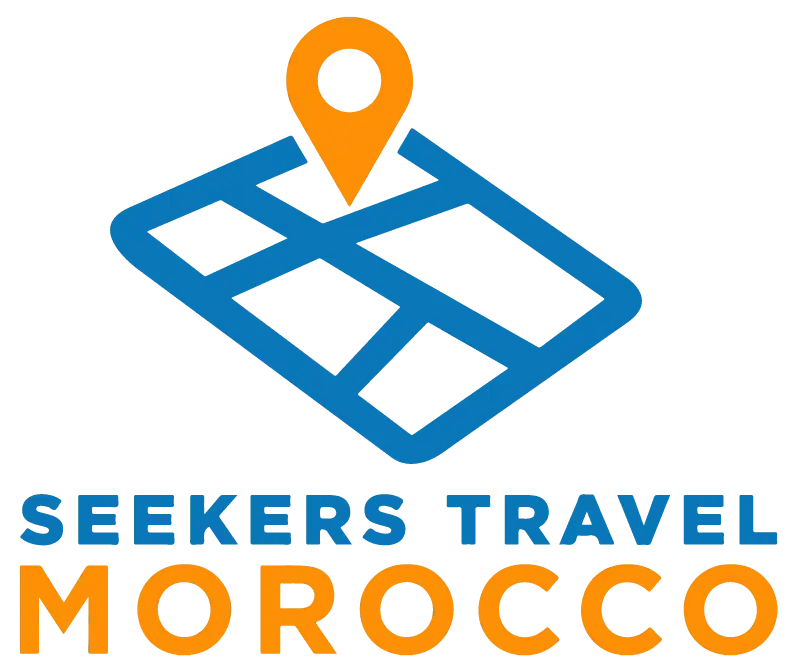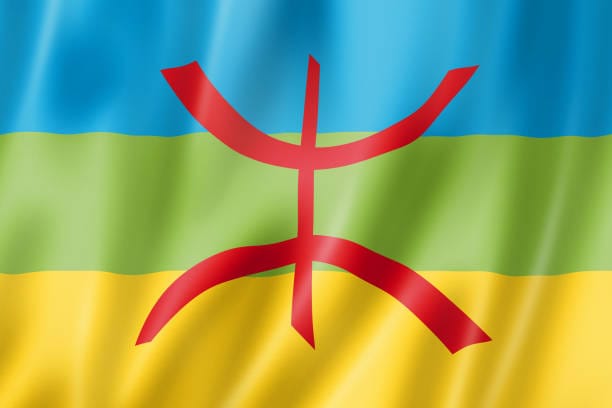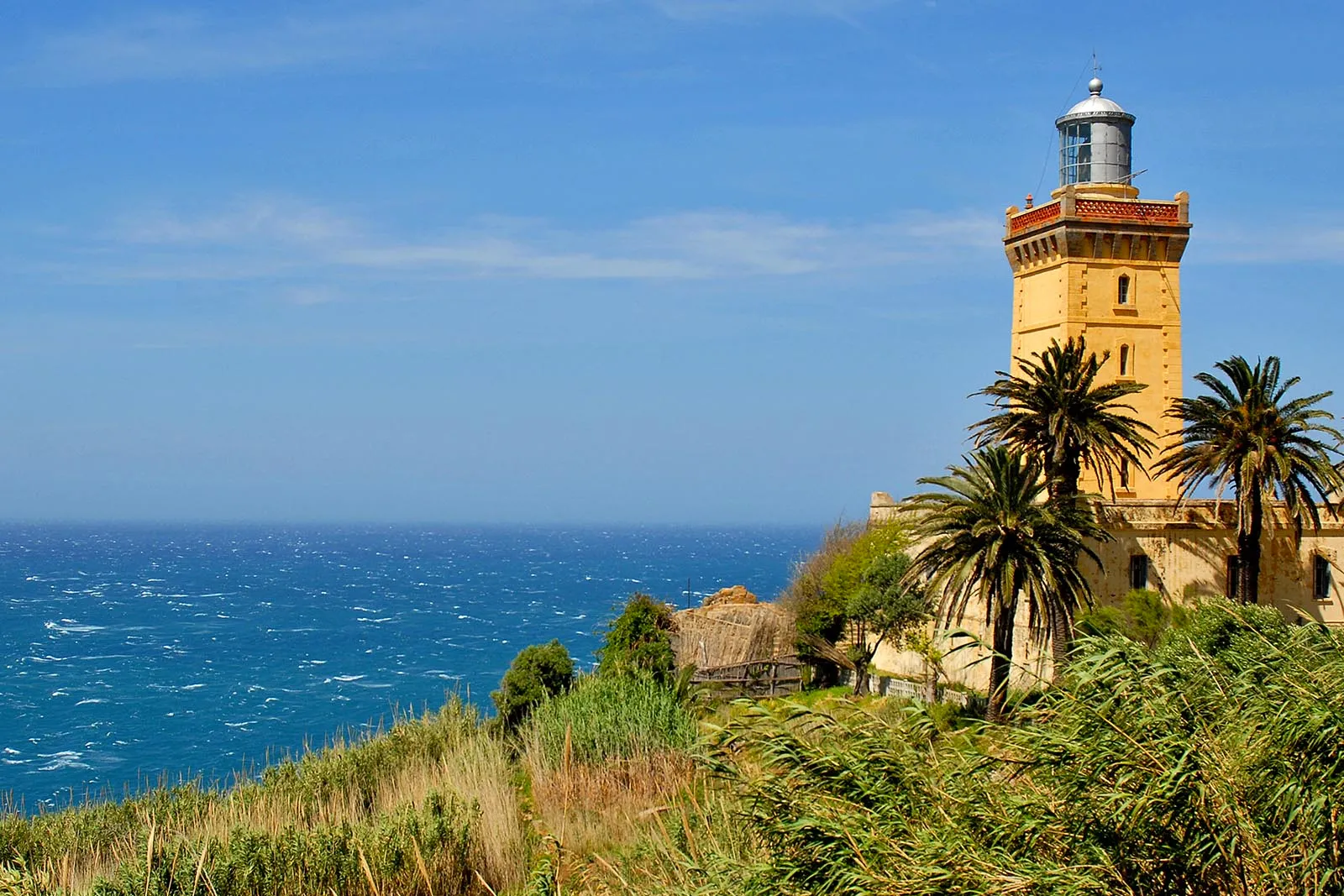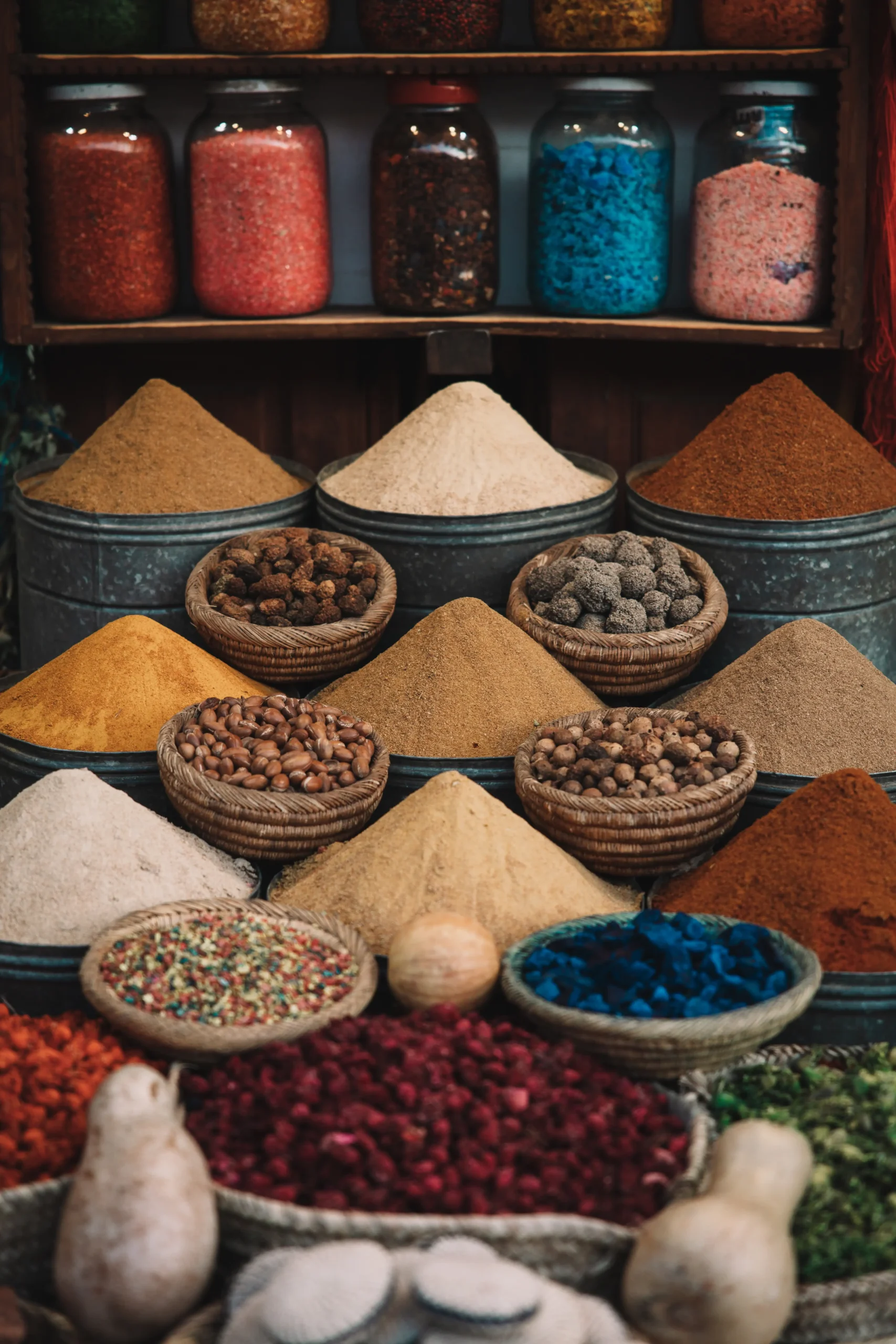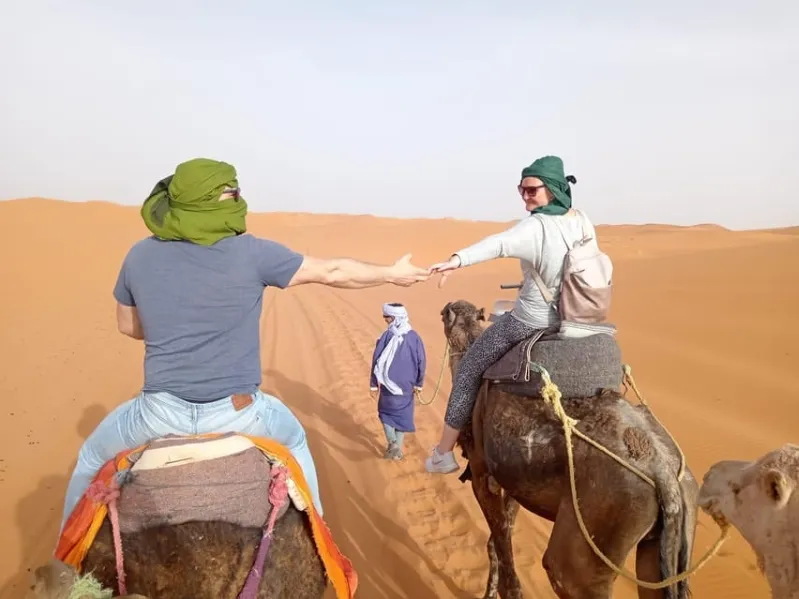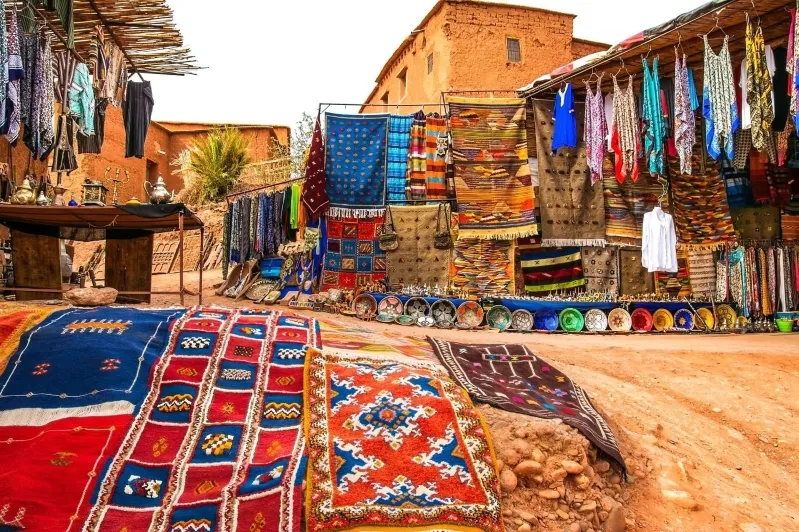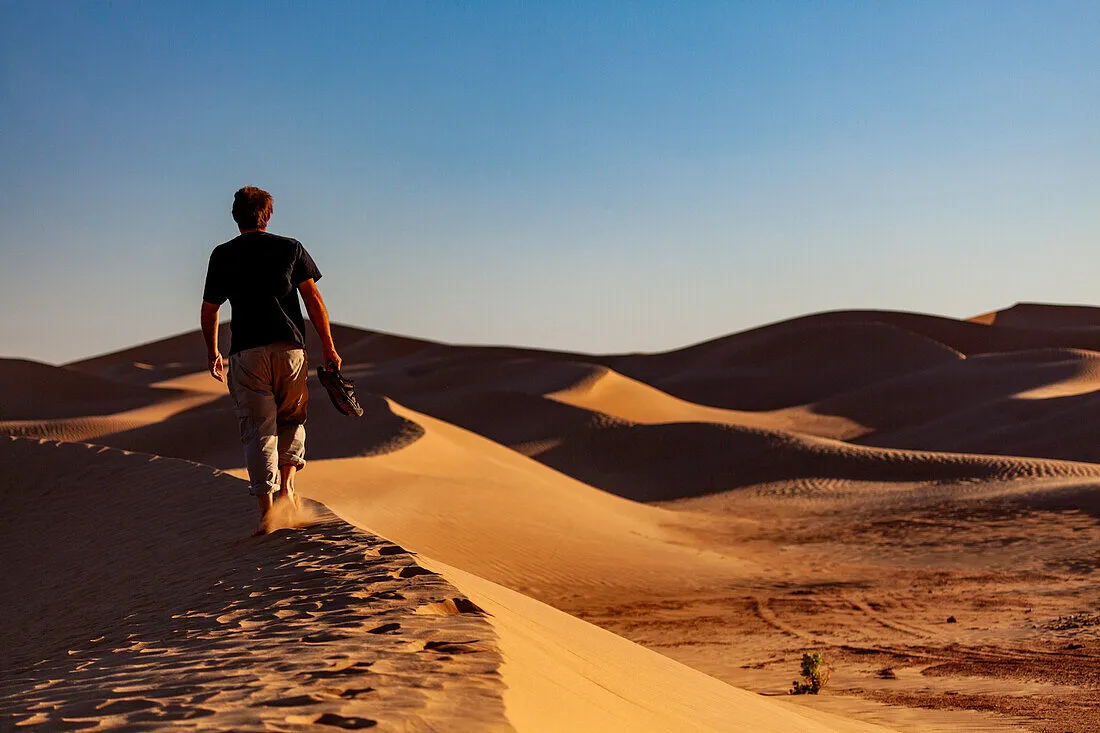If you imagine a picture of Morocco, you might picture busy souks, or the dunes, or the elaborate architecture of old cities. But under the skin of these iconic images is a rich and ancient heritage part of the culture that the Amazigh occupy in Morocco. These are the native people of North Africa, and their story is an important thread in the lively tapestry of Moroccan culture.
Understanding the Amazigh in morocco is going to empower your morocco holidays or morocco travel with an added level of meaning. Their language, their traditions, their history all texture the ground and the people.
At Trip To Morocco Tours, we feel that a real value added Morocco tour is not limited to sightseeing alone. It’s all about connecting to the heart of the culture, it is all about understanding the Amazigh in Morocco. Therefore, come with us fellow travelers as we explore the beautiful world of Amazigh in Morocco, how they lived, their culture and how they have remained a significant presence in this fascinating country.
A History Etched in Stone: The Ancient Roots of the Amazigh
The history of the Amazigh in Morocco stretches back thousands of years, long before the arrival of Arabs in the 7th century. They are the original inhabitants of North Africa, and their presence in the region is documented as far back as ancient Egyptian times.
- Masters of the Land: The Amazigh were skilled farmers, pastoralists, and traders, deeply connected to the diverse landscapes of Morocco, from the fertile plains to the rugged mountains and the vast expanse of the Sahara Desert.
- Resilience Through Time: Throughout history, the Amazigh have shown remarkable resilience, maintaining their distinct identity and languages despite various waves of migration and influence.
- A Legacy of Independence: Known for their fierce independence, the Amazigh teams often governed themselves through their own customs and traditions, particularly in the more remote and mountainous regions of morocco.
When you visit morocco, especially in areas like the Atlas Mountains, the Rif Mountains, and the Sahara Desert around Ouarzazate Sahara tours, you’ll be stepping into lands that have been home to the Amazigh for millennia. Their ancient presence is palpable in the local customs, the architecture, and the very spirit of these regions.
Discover the magic of this kingdom with our best tours:2-Day Desert Trip from Marrakech to Zagora ,4-Day Morocco Desert Tour from Marrakech to Merzouga and5-Day Desert Tour from Marrakech to Fes .
A Tapestry of Languages: The Sounds of the Amazigh
One of the most distinctive aspects of the Amazigh in Morocco is their languages, collectively known as Tamazight. These languages belong to the Berber branch of the Afro-Asiatic language family and have several regional variations spoken across Morocco.
- Three Main Dialects: In Morocco, there are three main dialects of Tamazight: Tachelhit, spoken in the south and southwest; Tamazight of Central Atlas, spoken in the Middle Atlas region; and Tarifit, spoken in the Rif Mountains in the north.
- A Written Tradition: While for a long time Tamazight was primarily an oral language, there is a rich written tradition using the ancient Tifinagh script, which you might see incorporated into art and cultural symbols during your morocco travel.
- Recognition and Revival: After years of marginalization, Tamazight was officially recognized as a national language of Morocco in the 2011 constitution. There are now efforts to promote and preserve the language through education and media, signifying a growing appreciation for this vital part of Moroccan heritage.
Hearing Tamazight spoken during your tours in morocco, especially in Berber communities, offers a unique auditory glimpse into the ancient soul of the land. It’s a reminder of the deep and enduring roots of the Amazigh in Morocco.
A Mosaic of Traditions: The Rich Culture of the Amazigh
The Amazigh in Morocco possess a rich and diverse cultural heritage that expressed through their music, dance, art, social customs, and traditional knowledge.
- Music and Dance: Amazigh music often characterized by its rhythmic drumming, melodic singing, and unique instruments like the bendir (frame drum) and the loutar (a lute-like instrument). Traditional dances are often communal and expressive, telling stories of daily life, celebrations, and rituals. You might experience this vibrant culture during a morocco holiday that includes a visit to a Berber village or an evening at an ouarzazate desert camp.
- Art and Craftsmanship: Amazigh art is renowned for its intricate geometric patterns and symbolic designs, found in carpets, jewelry, pottery, and tattoos. These artistic expressions often carry deep cultural meanings and reflect the history and beliefs of the Amazigh. When you visit morocco, take the time to appreciate the detail and symbolism in Amazigh crafts.
- Social Customs: Traditional Amazigh society often emphasizes communal values, hospitality, and strong family ties. Elders hold a place of respect, and decision-making within communities can follow traditional systems. The hospitality you experience from Amazigh people during your morocco travel is a testament to these deeply ingrained values.
Exploring the culture of the Amazigh in Morocco during your tours in morocco offers a deeper understanding of the country’s multifaceted identity and the enduring legacy of its indigenous people.
Encounters in the Landscapes: Where to Experience Amazigh Culture
To truly connect with the Amazigh in Morocco, consider including these regions and experiences in your morocco holidays:
- The Atlas Mountains: Trekking through the High, Middle, or Anti-Atlas Mountains offers opportunities to visit remote Amazigh villages, experience their traditional way of life, and witness their unique architecture and farming practices.
- The Sahara Desert (around Ouarzazate): The Amazigh have a long history of inhabiting the desert regions. An ouarzazate desert tour or a stay in an ouarzazate desert camp can provide insights into the culture and traditions of the Saharan Amazigh, including their music, storytelling, and adaptation to the harsh environment. You might even experience an ouarzazate camel ride led by Amazigh guides.
- The Rif Mountains: Exploring the northern Rif Mountains will introduce you to the Tarifit-speaking Amazigh and their distinct customs and traditions.
- Markets and Souks: Throughout Morocco, especially in Berber-dominated regions, you’ll find vibrant markets where Amazigh artisans sell their crafts, offering a chance to interact with the people and learn about their work.
A reputable travel agency in ouarzazate or other parts of Morocco can help you design tours in morocco that specifically focus on experiencing Amazigh culture in an authentic and respectful way.
The Amazigh Today: A Vibrant Part of Modern Morocco
The Amazigh in Morocco are not just a people of the past; they are a vibrant and dynamic part of modern Moroccan society. They are actively involved in all aspects of Moroccan life, from business and politics to arts and culture.
- Cultural Revival: There is a growing movement to preserve and promote Amazigh language and culture through education, media, and cultural associations.
- Political Engagement: The official recognition of Tamazight as a national language is a testament to the ongoing efforts of Amazigh activists and their increasing political engagement.
- A Source of Pride: The Amazigh heritage is a source of pride for many Moroccans, representing the country’s ancient roots and its rich cultural diversity.
When you visit morocco and interact with its people, remember that you are encountering a society that is deeply shaped by its Amazigh heritage, a heritage that continues to evolve and enrich the nation.
Experiencing Amazigh Culture Respectfully: A Seeker Travel Guide
As travel seekers eager to learn and connect, it’s important to engage with Amazigh culture respectfully during your morocco travel:
- Be Open and Curious: Approach encounters with an open mind and a genuine interest in learning about Amazigh culture.
- Listen Actively: Pay attention to what people share and ask thoughtful questions.
- Respect Local Customs: Be mindful of dress codes, social etiquette, and religious practices.
- Support Local Artisans: When purchasing Amazigh crafts, consider buying directly from artisans or cooperatives to ensure your money benefits the community.
- Choose Responsible Tours: Opt for morocco tours that prioritize cultural sensitivity and benefit local communities. A good travel agency in ouarzazate or elsewhere will be able to guide you.
- Learn a Few Words: Even a basic greeting in Tamazight can be a sign of respect and open doors to connection.
By embracing these principles, your visit morocco will not only be a journey through stunning landscapes but also a meaningful encounter with the ancient soul and vibrant present of the Amazigh in Morocco.
The Enduring Legacy: Why the Amazigh Matter to Your Morocco Holiday
Understanding the Amazigh in Morocco is not just an academic exercise; it deeply enriches your morocco holidays. It allows you to:
- Connect with the Land’s History: See the landscapes through the eyes of its original inhabitants.
- Appreciate Cultural Diversity: Recognize the multifaceted nature of Moroccan identity.
- Engage More Authentically: Move beyond superficial interactions and connect with people on a deeper level.
- Support Cultural Preservation: Your interest and respectful engagement contribute to the ongoing vitality of Amazigh culture.
So, as you plan your tours in morocco, remember to look beyond the well-trodden paths and seek out the stories and traditions of the Amazigh in Morocco. Their enduring legacy is waiting to discover, adding an unforgettable dimension to your morocco travel experience.
Frequently Asked Questions: The Amazigh in Morocco
Who are the Amazigh in Morocco, and what is their historical value as indigenous people in north Africa when visiting morocco?
The Amazigh of Morocco are the indigenous people of north Africa with the history back to thousands of years. But knowing about their ancient roots give you crucial background for the cultural heritage you will see during your morocco travel.
Which are the major Amazigh languages spoken in morocco and what is it’s official recognition impact on the cultural horizon of morocco travel seekers?
Primary Amazigh languages in Morocco are Tachelhit, Tamazight of Central Atlas, and Tarifit. The official recognition reflects an increased respect for a crucial part of the Moroccan heritage, that which might be felt by morocco travel seekers in the increased media and education exposure.
What are some aspects of Amazigh culture in morocco such as music, art and social customs, which might encounter travel seekers during their tours in morocco?
Amazigh culture abounds with rhythmic music, expressive dance, elaborate geometric art in such crafts as carpets and jewelry, and traditions of community, with hospitality being one of the pillars, that explorers will probably feel firsthand on their morocco tours.
Which parts of Morocco do Amazigh communities dominate, and which are the most rewarding areas for cultural immersion while on morocco holidays for travel seekers?
Amazigh communities are present in the Atlas Mountains, the Rif Mountains and the Sahara desert ( around ouarzazate morocco). These areas provide great opportunities for authentic cultural encounters on morocco holidays, for example, a visit to the villages of the berbers or a stay in an ouarzazate desert camp.
How can travel-seekers ensure to immerse themselves in a respectful and ethical manner in Amazigh culture during a visit morocco, especially regarding dealings with the local communities or getting Amazigh crafts?
To travel respectfully, people looking for travel should be open and curious, listen actively, respect the local customs (mind your dress, ask before photographing), support local artisans directly and choose responsible Morocco tours benefiting amazigh communities.
What position does the Amazigh language and culture have in contemporary morocco and how does this impact a typical visit to morocco to form an idea of the moroccan national identity?
The Amazigh language and culture are lively and ever-more accepted aspects of contemporary Morocco, integrating themselves into the abundant and varied identity of the country. Been with this heritage gives the seekers of travel a deeper and more appreciative knowledge of the Moroccan experience when they arrive in morocco.
When planning a tour of morocco including the ouarzazate region, what kind of aspects of Amazigh culture can I expect in an ouarzazate desert tour or an ouarzazate camel ride?
In the ouarzazate region, you may find the peculiar traditions of the Saharan Amazigh, their aboriginal music and stories, their persuasions against the desert, and their famous kindness in the ouarzazate desert tours and ouarzazate camel rides.
Is a travel agency in ouarzazate able to organize for me tours from ouarzazate that reflect experiencing authentic Amazigh culture and traditions in the surrounding areas?
Definitely a reputable travel agency in ouarzazate can arrange tours from ouarzazate that constructed specifically in such a way to provide authentic experiences with the amazigh culture, including visits to the berber villages, cultural shows, and interaction with local artisans.
Are there any simple greetings or phrases that morocco travel seekers can learn on their visit to morocco to improve their interactions with Amazigh people?
And just learning even a few basic greetings in the local Amazigh dialect of the place that you visited, will add a lot to your inputs and show your respect. As an example, “azul” is a popular greeting that means “hello” or “peace”. You can find out more exact phrases from your guide or local sources.
Why is it important to study and get an understanding of the history and culture of the Amazigh in Morocco for the benefit of travel seekers during their morocco holidays?
Understands history and culture of the Amazigh of Morocco give travel seekers closer to land and the people, enables more authentic cultural exchange, and offers a greater appreciation for the country’s diversity and creates a better and rewarding Morrocco holidays experience.
